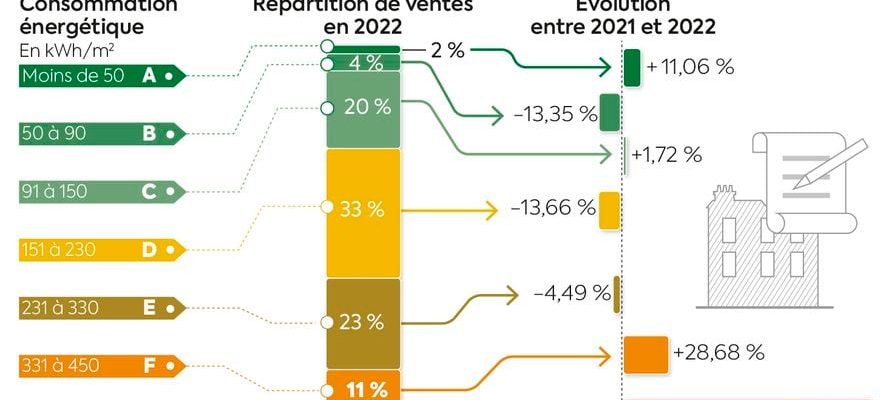Housing. A primary need that is struggling to be satisfied in France in 2023. And the situation is not about to improve. Already subject to multiple constraints – environmental standards, high land prices, rent controls, etc. – the real estate sector is today disrupted by the rise in rates. Our explanations and ways to break the impasse in this six-part special report.
“A system of aid that is difficult to understand for households”, “an insecure and complex user journey”… In a report, made public these days, on subsidies for the ecological transition, the General Inspectorate of Finance (IGF) draws up a mixed assessment, to say the least, of energy savings certificates (CEE) and MaPrimeRénov’, the main support systems for housing renovation.
Fraud and non-compliant work
The CEEs do not cost much to public finances: it is the energy suppliers who invite the owners to carry out work – wall insulation, purchase of a heat pump, etc. –, of which they finance all or part, l State content with pilotage. Problem: of the 3.8 billion euros put aside by companies in 2022, the IGF estimates that the energy savings actually achieved represent only 60% of those officially recorded, due in particular to the lack of -quality and fraud.
MaPrimeRénov’ – 2.5 billion euros per year, public money this time – does not escape this pitfall: 17% of the controls carried out last year concluded that the work was non-compliant. But only 1.7% of them resulted in the premium payment being rejected. The gendarme notes the infraction, but does not issue the fine: this is what annoys Bercy… As for the match of efficiency between public and private financing, it is folded: in terms of energy savings, the EECs are three times more efficient per euro spent and per year than MaPrimeRénov’. Hypothesis made by the Financial Inspectorate: the public authorities are pursuing “other objectives, and in particular the decarbonization of the residential sector, which may lead to favoring operations that are less energy efficient but more economical in CO2”. If even the roadmap is not clear…
3778 housing thermal strainers
© / Art Press
The big sale of thermal strainers
“The French do not make energy renovation their priority,” says Yann Jéhanno, president of the Laforêt network. And MaPrimeRenov’ misses the point: it is overwhelmingly used by owner-occupiers, not by landlords.” In fact, since its creation in 2020, 92% of the work carried out through this system has been carried out in individual houses, while the latter represent barely half of the total stock of main residences. MaPrimeRénov’ Copropriétés, supposed to help co-owners’ associations finance the renovation of common areas, only gave rise to just over 500 files last year, compared to 532,000 for the standard version. Knowing that the country has 4.8 million thermal strainers with an F or G energy label, we can see the gap that remains to be filled…
In the absence of work likely to improve this infamous score, the G-rated housing which is currently rented will no longer be able to be rented on January 1, 2025. Three years later, the F will follow. Owners who do not want to take out their checkbook – 10,000 euros on average, subsidized a third by MaPrimeRenov’ – have found the solution, radical: they sell. For two years, a number of strainers have changed hands, with a “significant discount in all regions compared to similar class D housing”, specifies a recent note from the Superior Council of Notaries. In the Grand Est and Hauts-de-France, the discount exceeds 10%.
Unfortunately, buyers of these energy-intensive goods do not seem any more eco-friendly. According to the feedback received from the notary, they instead intend to occupy the accommodation, thus avoiding the obligation to bring it up to standard. Even if it means paying, thanks to the discount obtained, hefty electricity bills… For Julien Chambon, the LREM mayor of Houilles (Yvelines), it is urgent to rethink renovation as a creation of heritage value and not a constraint: “The owners can take advantage of the construction site to create an extension to their house, intended for rental, and thus finance the operation. In small buildings, we can add a floor. These are interesting avenues for densifying the existing building without distorting the suburban model to which many citizens are attached.” Two birds with one stone.
.
